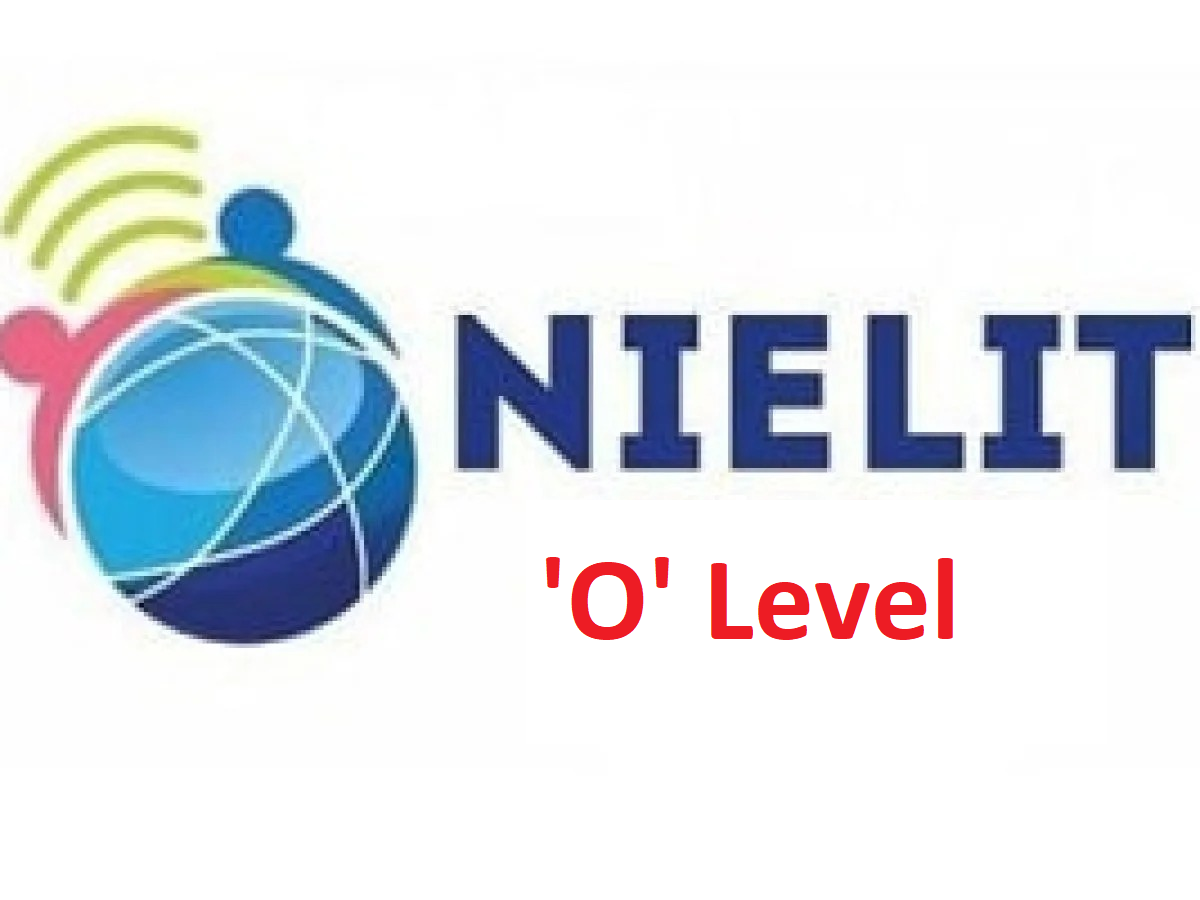The O Level course, conducted by NIELIT (National Institute of Electronics and Information Technology), is a one-year foundational IT certification recognized by the Government of India. It is ideal for students seeking careers in IT support, data entry, or government jobs.
As per the latest syllabus (Revision 5.0), the course includes the following papers:
- M1-R5: IT Tools and Network Basics
- M2-R5: Web Design and Publishing
- M3-R5: Programming and Problem Solving through Python
- M4-R5: Internet of Things and Its Applications
- Project Work
Examination Details:
- Conducted twice a year (January and July)
- Each theory paper: 100 marks, 3 hours
- Passing marks: 50 in each paper
- One practical exam (based on M1, M2 & M3): 100 marks
- One project: 100 marks (minimum 50 to pass)
Candidates must pass all theory, practical, and project components to earn the certificate.

M1-R5: Information Technology Tools and Network Basics
This module introduces fundamental computer concepts, operating systems, word processing, spreadsheets, presentations, and database basics. It also covers internet usage, email, cybersecurity, and networking essentials, including LAN, WAN, protocols, and network devices. The course builds a strong base in IT tools and basic networking for daily and professional use.

M2-R5: Web Design and Publishing
This module teaches the basics of web design using HTML5, CSS, and JavaScript. It covers creating and styling web pages, embedding media, designing responsive layouts, and using web publishing tools. Students learn to develop interactive websites and publish them online, building skills for both personal and professional web development.

M3-R5: Programming and Problem Solving through Python
This module introduces programming using Python. It covers basic syntax, data types, control structures, functions, and file handling. Students learn problem-solving techniques, algorithm design, and how to write, test, and debug Python programs. It builds foundational programming skills for application development and logical thinking in software environments

M4 R5 Interface of Things
M4 R5 Interface of Things connects devices for seamless communication, enabling smart interactions. It manages data exchange between sensors, actuators, and controllers, ensuring efficient system operation. This interface supports automation, remote monitoring, and real-time responses in applications like smart homes, industries, and healthcare.
IT Literacy Programme

Basic Computer Course (BCC)
The Basic Computer Course (BCC) introduces beginners to essential computer skills. It covers topics like computer basics, operating systems, word processing, internet usage, and digital communication. Designed for digital inclusion, BCC empowers individuals to use technology confidently in everyday tasks, education, and work, fostering personal and professional growth.

Course on Computer Concepts (CCC)
The CCC course provides basic computer literacy to individuals with little or no prior experience. It covers computer fundamentals, internet browsing, email, word processing, and digital payments. Aimed at promoting digital empowerment, CCC helps users gain confidence in using technology for daily tasks, communication, and accessing online services effectively.

CCC Plus (CCCP)
CCC Plus (Course on Computer Concepts Plus) is an advanced digital literacy program designed to build upon basic IT knowledge. It covers computer fundamentals, internet usage, email, word processing, spreadsheets, presentations, and cybersecurity. The course empowers individuals for digital participation, higher education, and improved job prospects in a technology-driven world.


